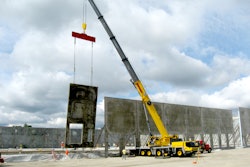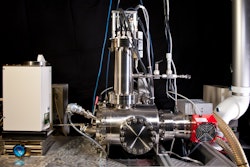As part of the Obama Administration's commitment to strengthening our energy security and lowering fuel costs for U.S. businesses and consumers, the Energy Department has announced more than $50 million in funding for new projects that will accelerate the development of advanced plug-in electric vehicle (PEV) technologies to increase vehicle fuel economy and improve performance. This new funding supports the Energy Department's EV Everywhere Grand Challenge, which aims to make PEVs as affordable to own and operate as today's gasoline-powered vehicles within the next 10 years, and will help to advance the technology goals outlined in the EV Everywhere Grand Challenge Blueprint.
The Energy Department will select new research projects that focus on lowering the cost and increasing the efficiency of PEV components, as well as the development of models and tools to predict these vehicles' performance and help improve fuel economy. The Department will fund projects across five major areas of research and development that cover 12 areas of interest, including:
- Advanced lightweighting and propulsion materials: Advanced materials are essential to reducing vehicle weight while maintaining performance and safety, especially in PEVs. Projects selected in this area will contribute to research in cast magnesium alloys, high-strength steel and dissimilar material joining.
- Advanced battery development: Advances in battery technology can result in less expensive, more efficient batteries that can enable greater all-electric range. Projects selected in this area will improve cell chemistry, composition and processing; contribute to battery modeling; or develop advanced electrolytes for next generation lithium-ion cells.
- Power electronics: Improving power electronics can lower the cost, improve the efficiency, and decrease the weight of electric traction systems in PEVs. Projects selected in this area will develop lower-cost inverters and capacitors that are capable of withstanding much higher temperatures than current technology and can be commercially manufactured.
- Advanced heating, ventilation, and air conditioning systems: Auxiliary loads like heating and cooling have a greater impact on the efficiency of PEVs than conventional vehicles. High efficiency heating and cooling systems can significantly increase all-electric driving range while providing a comfortable temperature for passengers. Projects selected in this area will develop and demonstrate technologies to reduce these auxiliary loads.
- Fuels and lubricants: Fuels and lubricants can increase the efficiency of both future vehicles and those already on the road. Projects selected in this area are expected to improve the fuel efficiency of light-, medium- and heavy-duty vehicles.
Through the Advanced Vehicle Power Technology Alliance between the Department of Energy and the Department of the Army, the Army is contributing $3.5 million co-funding in several areas where there are joint development opportunities.
The Department will accept applications from industry, national laboratories and university led-teams to address these challenges and enable technologies that will drive innovation in vehicle design. Read more information and application requirements.



















